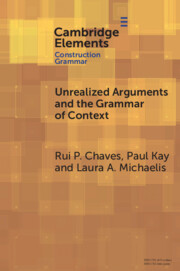Refine search
Actions for selected content:
1 results

Unrealized Arguments and the Grammar of Context
-
- Published online:
- 31 July 2025
- Print publication:
- 04 September 2025
-
- Element
- Export citation
